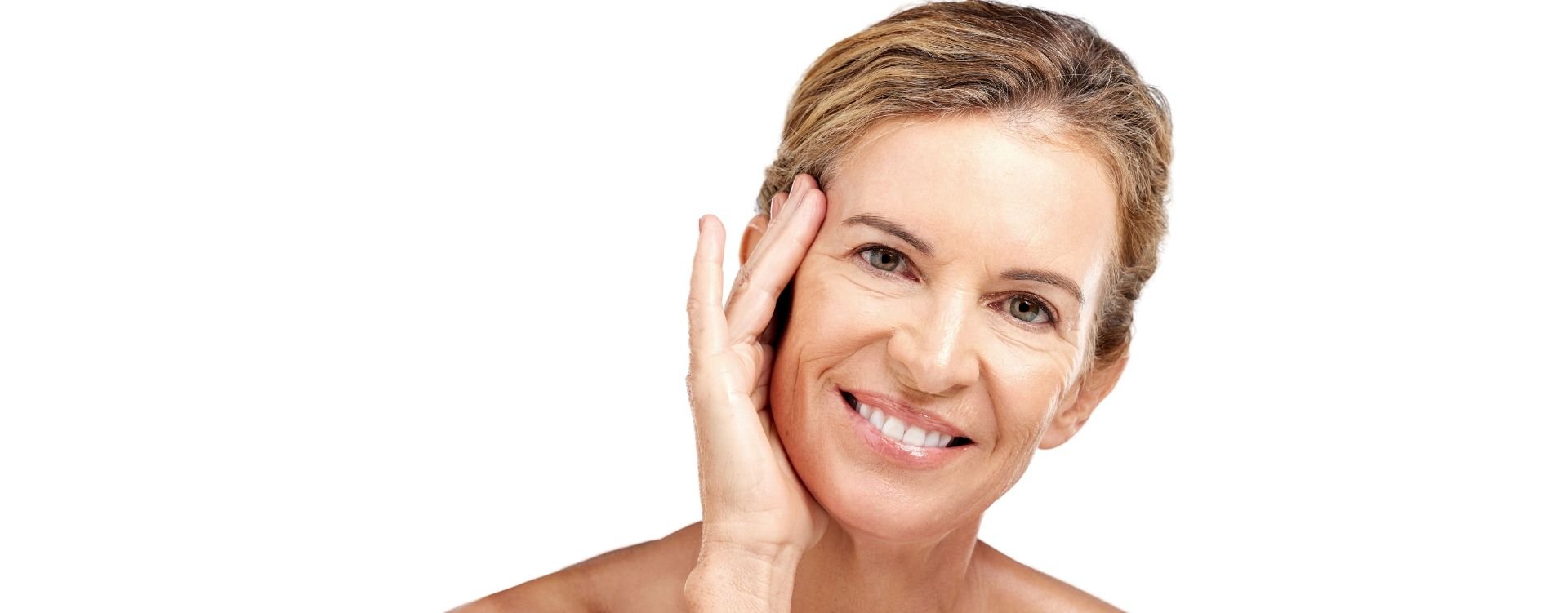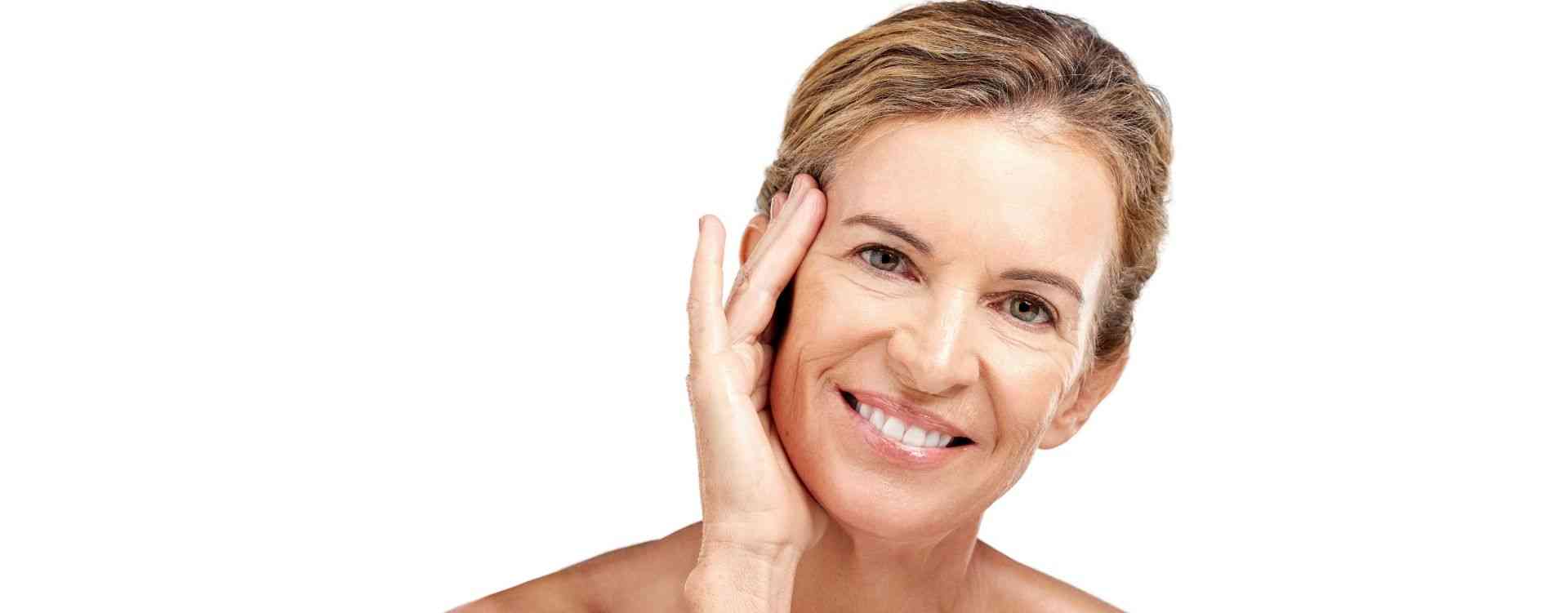Menu
What are crow's feet?
Think of the skin around your eyes like an elastic band. The more you stretch it, the more it loses its elasticity. Then over time, it doesn’t go back to its original shape or form.
When you’re expressive, the skin around your eyes acts in the same way, eventually losing its plumpness and producing lasting wrinkles and fine lines as a result. We call these fine lines on the outer corner of the eyes ‘crow’s feet’.
Whilst SPF and a religious skincare routine can be fantastic preventatives for fine lines and wrinkles around the eyes can sometimes reach the point of no return. In these cases, non-surgical, injectable treatments such as Botox and dermal fillers can help rejuvenate and replenish the area affected.
What are crow's feet?
Think of the skin around your eyes like an elastic band. The more you stretch it, the more it loses its elasticity. Then over time, it doesn’t go back to its original shape or form.
When you’re expressive, the skin around your eyes acts in the same way, eventually losing its plumpness and producing lasting wrinkles and fine lines as a result. We call these fine lines on the outer corner of the eyes ‘crow’s feet’.
Whilst SPF and a religious skincare routine can be fantastic preventatives for fine lines and wrinkles around the eyes can sometimes reach the point of no return. In these cases, non-surgical, injectable treatments such as Botox and dermal fillers can help rejuvenate and replenish the area affected.
Botox for crow's feet reviews
Crow's feet treatment prices
How to get rid of crow's feet?
Botox for crow's feet. Fine lines and wrinkles on the outer corner of the eyes can be treated with Botox injections. Botox temporarily reduces activity in the facial muscles responsible for facial lines and wrinkles. Botox injections targeted to this area relax the muscles that cause these lines and wrinkles. As a result, expression lines are smoothed out. The results of Botox can be typically seen after 5-7 days and can help prevent fine lines and wrinkles. A Botox treatment in this area will tend to last between 3-4 months, but this varies from person to person. In order to maintain the result, repeat treatments are necessary.
Filler for crow's feet. Juvéderm dermal filler is an injectable gel made with hyaluronic acid (HA), a substance that occurs naturally in skin but diminishes with age. Dermal fillers can plump and volumise the skin, making it a popular option to treat fine lines and wrinkles around the eyes. As this treatment is non-surgical and non-invasive, downtime is minimal so patients can go about their day as usual. Filler for crow's feet can last between 12-15 months, but this all depends on the individual.
How to get rid of crow's feet?
Botox for crow's feet. Fine lines and wrinkles on the outer corner of the eyes can be treated with Botox injections. Botox temporarily reduces activity in the facial muscles responsible for facial lines and wrinkles. Botox injections targeted to this area relax the muscles that cause these lines and wrinkles. As a result, expression lines are smoothed out. The results of Botox can be typically seen after 5-7 days and can help prevent fine lines and wrinkles. A Botox treatment in this area will tend to last between 3-4 months, but this varies from person to person. In order to maintain the result, repeat treatments are necessary.
Filler for crow's feet. Juvéderm dermal filler is an injectable gel made with hyaluronic acid (HA), a substance that occurs naturally in skin but diminishes with age. Dermal fillers can plump and volumise the skin, making it a popular option to treat fine lines and wrinkles around the eyes. As this treatment is non-surgical and non-invasive, downtime is minimal so patients can go about their day as usual. Filler for crow's feet can last between 12-15 months, but this all depends on the individual.
Treating crow's feet without Botox or dermal filler
If you're looking to treat crow's feet without Botox or dermal filler, a laser based treatment could help. Due to the heat energy caused during treatment, the laser device helps firm up the skin by stimulating collagen production. But this all depends on the extent of your fine lines and wrinkles. During your no obligation consultation at our London clinic, we'll take a look at the depth and extent of the wrinkles in the surrounding area. Our medical professionals will then recommend the most effective treatment for you, whether that's Botox, dermal filler or laser resurfacing.
Our expertise
Our Botox and dermal filler treatments are only performed by our experienced doctors and nurses, ensuring your treatment is of the highest and safest standard. During your consultation, one of our medical professionals will find the best treatment to address your lines and wrinkles, ensuring you're fully happy with your results.
Leading our team of experienced medical professionals who perform Botox and dermal fillers, PHI Clinic founder Dr Tapan Patel holds The Aesthetics Award 2023 for Outstanding Achievement in Medical Aesthetics, and is a global trainer for Allergan Aesthetics. Dr Tapan educates doctors and nurses from all over the globe, and this is no exception when it comes to our medical professionals. Every week, our team are updated on regular techniques, and consistent monitoring and mentoring takes place to ensure that all of our patients receive the highest level of care, comfort during treatment, and most importantly effective results.
Botox at PHI Clinic with Alice Hart Davis
Your crow's feet treatment practitioners
Safe and effective treatment
Your safety is our priority at PHI Clinic. To ensure maximum standards of patient care, Botox and dermal filler injections are only ever carried out by our experienced, highly qualified doctors and nurses. All our patients have a thorough consultation before having Botox or dermal filler, and treatment is always carried out on a separate day. We believe it is essential for patients to be able to think before deciding whether to go ahead with their bespoke treatment plan.
What causes crow's feet?
As we start ageing, the body stops producing collagen (which keeps skin supple and firm) and elastin (which helps skin ‘bounce back’). So when the skin around the eyes constantly moves when we’re expressive, it stops going back to its smooth and plump ways. As well as ageing, the lines and wrinkles in this area can worsen due to sun exposure, poor skin care, smoking, genetics and stress.
- Ageing. Crow’s feet are often one of the first signs of ageing as the skin around the eyes is much thinner compared to the rest of the face. Skin around our eyes also doesn’t produce oil like the rest of our skin, making it more delicate, and more likely to become dry and thin.
- Sun exposure. We all know the dangers of UV exposure and sunburn, but for delicate under-eye skin, it can be even more damaging. Sun exposure can cause pigment producing cells to mature abnormally. Also, exposure to the sun’s rays can cause squinting which contributes to wrinkles and fine lines on the outer corner of the eyes
- A hydrating SPF should always be a part of your skincare routine. Wearing SPF 30 or above can protect your skin from UV exposure and sunburn, which are significant contributors to crow’s feet. Whilst you’re in the sun, wearing sunglasses and a sun hat can also help prevent squinting which can also worsen lines and wrinkles around the eyes.
- Poor skin care. If under-eye skin is not kept moisturised, the chances of lines appearing deeper and more pronounced increase dramatically. Skincare and intensive skincare treatments can address fine lines and wrinkles around the eye area. Whilst off-the-shelf skincare products are often the go-to, a tailored treatment plan by a skincare specialist could be the right way to go when it comes to preventing fine lines and wrinkles.
- Smoking. Smoking causes blood vessels near the top layer of skin to become narrow, which limits the moisture and nutrients that skin has access to. This can make lines appear darker and deeper. Avoiding smoking is not only really important for your health, but for your skin too.
- Genetics. Wrinkles around the eyes can also be hereditary, generally passed down from father to son and mother to daughter.
- Stress. Fine lines and wrinkles around the eyes can be caused by a whole range of emotions. If you are stressed, your crow’s feet can be worsened.
Crows feet frequently asked questions
Location
PHI Clinic
102 Harley Street,
London,
W1G 7JB,
United Kingdom
Tel: +44 7883 317963
Opening Hours
Monday & Tuesday - 9:30am to 6:00pm
Wednesday & Thursday - 9:30am to 8:00pm
Friday - 9:30am to 5:30pm
Saturday & Sunday - Closed
Opening times can change, if your appointment is outside of these times please contact the clinic for confirmation.



